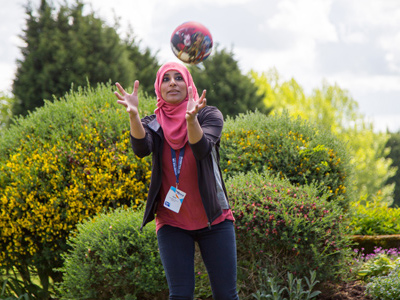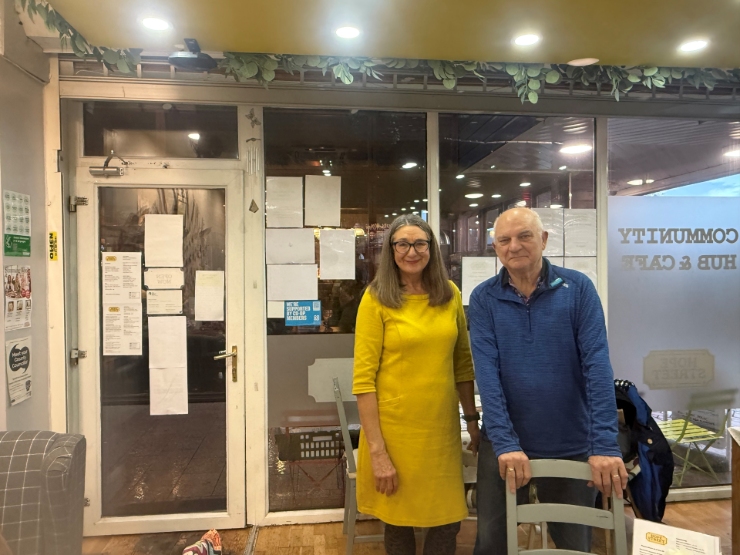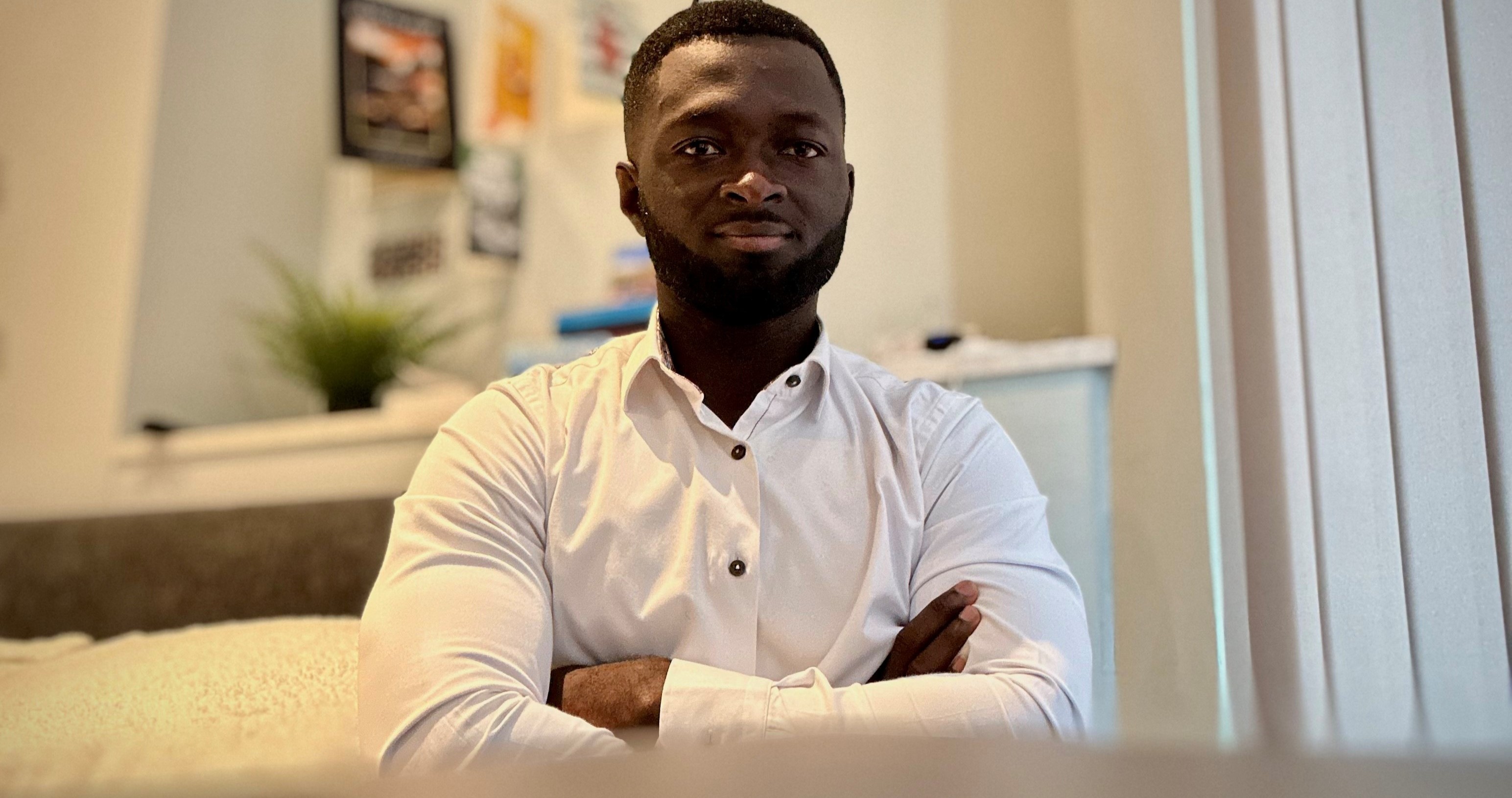Nusrat, a specialist dietitian, has volunteered at our children's events three times.
Hear why she finds the experience so rewarding — and what a typical week looks like.

This is now my third year volunteering for Diabetes UK at a children’s event. Every year the experience has been so highly rewarding and fun, that I keep coming back.
I initially became involved after seeing an appeal on social media for a dietitian. I felt volunteering would give me 'hands on' experience of supporting someone with type 1 diabetes, as well as allow me to see how insulin pumps, continuous glucose monitoring systems (CGMs) and injections work in 'real life' situations.
Apparently, HCPs are like 'gold dust' and we can be hard to find, but for these events to succeed, Diabetes UK really needs our support.
Join us as a healthcare professional volunteer
To put you in the picture, here is an insight into what a typical week volunteering looks like.
Day 1: meeting the dream team and prepping
The long anticipated trip to camp began. As senior dietitian, I had been involved in lots of pre-planning to ensure all the food and snacks would be suitable for the volunteers and children attending. I arrived at the centre in Dorset to the pre-event training session. This included how to treat hypos, what to do if there were any safeguarding issues and how to deal with home sickness.
I met the rest of the ‘dream team’ which included a doctor called Charlotte; two Paediatric Diabetes Specialist Nurses (PDSNs), Cynthia and Phoebe; two dietitians to-be; Joanne and Catrin, and three type 1 diabetic helpers, Jon, Eloise and Sunny. Lastly three of Diabetes UK’s fabulous staff, Amy, Max and Odette.
Our Lead Volunteer confirmed we were expecting 30 children. The children would be split into four groups and each group would be supported by a team of PDSNs, dietitians and helpers. I had the lovely Jon and Catrin in my mini team (Group 3) and we would be looking after the 13-14 year olds. After training, we set off for ice-breaking, which surprisingly was a lovely meal out to a local restaurant.
Day 2: set up and welcome
It's 8am and we make preparations for the children’s arrival, including creating the night duty and wake-up rotas, writing name signs on the rooms and setting up the makeshift reception area ready for the big ‘drop off’. We unpack the medical supplies and unload a huge delivery of snacks and drinks which we stow away for later. The dietitians to be and I create snack bags and the medics create the hypo bags for each group.
Around lunchtime the parents arrive and the handover of all history, medications (and the children obviously) begins. Our first activity starts at 2pm. Group 3, which includes four teenage boys and four teenage girls head out to archery followed by Jacob’s ladder. Everyone gets involved despite the sudden downpour of rain and we open the glucotabs as we start with the first round of hypos.
Our evening meal at 6pm is a military operation led by our groupie Patrick. We grab tables and the volunteers further prep by ensuring the ‘Carbs and Cals’ books and the sharps bins are out. We make sure everyone has their testing kits and insulin ready for a meal without parental support - the first time for many this week. Then it’s all hands on deck, particularly the PDSNs and dietitians, helping the children carbohydrate count and take the appropriate insulin with their food and drinks.
"We make sure everyone has their testing kits and insulin ready for a meal without parental support - the first time for many this week."
The evening activity ends up being indoors due to the rain, but it allows everyone to bond in their groups as we throw our shoes in hoops and even play a bit of limbo! Finally we head off for pre-bed snacks where the medics encourage reductions in pump ratios/insulin to help reduce hypos and try to get them to sleep.
Day 3: trapeze, dragon boating and building confidence
Group 3 are pretty competent at carb counting at breakfast, but need encouragement to think about reducing ratios/insulin as we have an active day ahead. Except one teen, they are all ‘pumpers’ and most of them have Continuous Glucose Monitors (CGMs) and mobile phone linked CGMs.
We head to orienteering where one teen runs rings around us all, whilst the rest of the group are 'too tired' (having stayed up all night). Then, we brave the trapeze which has beautiful views of the seafront at the top. After lunch, we take a coach to the sea, where we try dragon boating for the first time. Luckily no one hypos out on the water but afterwards, it's sugar all-around followed by dinner.
"Group 3 are pretty competent at carb counting at breakfast, but need encouragement to think about reducing ratios/insulin as we have an active day ahead."
One of my teens independently changes his cannula for the first time (without mum). We enjoy the sunset, then it's snack time, where the children also have their mobile phones for an hour. After the night meeting, a few of the volunteers play ping pong and darts. Then I share some tips with Dr Charlotte (newbie medic volunteer) for her first-ever night duty with the fabulous type 1 helper Max.
Day 4: dealing with hypos
The girls have hypos overnight, so I pick the PDSNs brains about what they suggest to help, then I chat with the girls about reducing their overnight ratios further, but I have a couple of nervous customers. The day’s activities included zip wire, mountain biking, street surfing and giant swing. Everyone tries so hard to master street surfing. There are many hypos and one or two ‘tantrums’ from the teens which we sorted, with me playing the ‘bad cop.’ After the evening meeting, I help a nervous type 1 helper Jon and superstar PDSN Cynthia on the start of their night duty.
Day 5: night duties and ratios
I discuss reducing pump ratios for night time with my girls (who hypo-ed again) and they agree to try overnight (yippee). We head off quad biking and abseiling, followed by kayaking in the ocean. After dinner, the dietitians went shopping and came back to hear about our first injury of the week, which thankfully Dr Charlotte sorted (handy for all-things first aid).
Later, my roomie Odette (T1 helper extraordinaire) and I receive handover from the medics for our turn at night duty. We don head torches and start our night checks, administering emergency Jaffa cakes where needed. We adjust ratios and try to navigate the alarms on the various gadgets.
"We donned head torches and started night checks, administering emergency Jaffa cakes where needed. We adjusted ratios and tried to navigate the alarms on the various gadgets."
Day 6: no night-time hypos, beach time and rifle shooting
My girls didn’t hypo overnight! They seem excited that something the adults suggested really does work and that the HCPs may actually know something (progress!). We play airball, but one of my girls has constant high sugars and we figure out that it’s a cannula failure. We fix it and then head to a really relaxing time on the beach and manage to squeeze in a visit to the local petting zoo. After lunch, we have rifle shooting and a sensory trail - the funniest thing to watch and great to see the group helping each other. We have an energetic end to the night playing some sort of war game, which results in lots of hypos and pre-bed snacking. My teens at this point are pros at adjusting their insulin and ratios for non-hypo nights.
Day 7: team work and campfire
We spend the morning climbing walls and tunnels where I have an epic race with the most competitive teen on the planet. After lunch we head out to sea again and there is some fantastic team working from the children building rafts together. The final evening activity is campfire, where we volunteers all try to complete reports for the children in addition to joining in with their very entertaining stories and camp songs. At snack time, our Lead Volunteer gave a speech and handed out certificates. There is a flurry of activity from all the children as they ask volunteers and each other to sign their certificate for them.
Day 8: goodbye hugs and feeling proud
After breakfast we pack and the children ‘hang out’ together one last time, before their families arrive and their momentous adventure ends. There are many sad faces as they don’t want it to end, but there are also lots of goodbye hugs and declarations of 'thanks' and 'fun' from the children.
At the end of the week I always feel like a proud teacher as the children leave camp feeling more independent, more confident and with a type 1 peer support network. The week is always full of many challenges in a fun-filled environment, and introduces you to some awe-inspiring volunteers and offers a peek into what children with type 1 diabetes go through every day just to survive.


